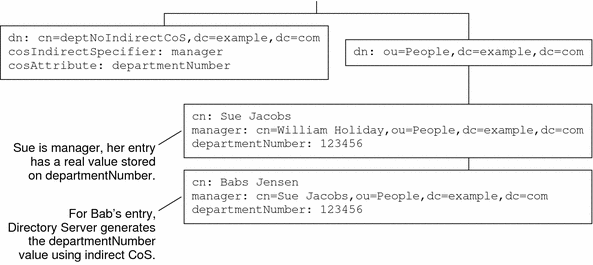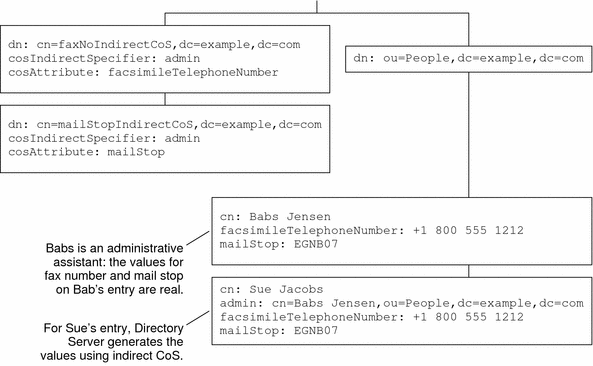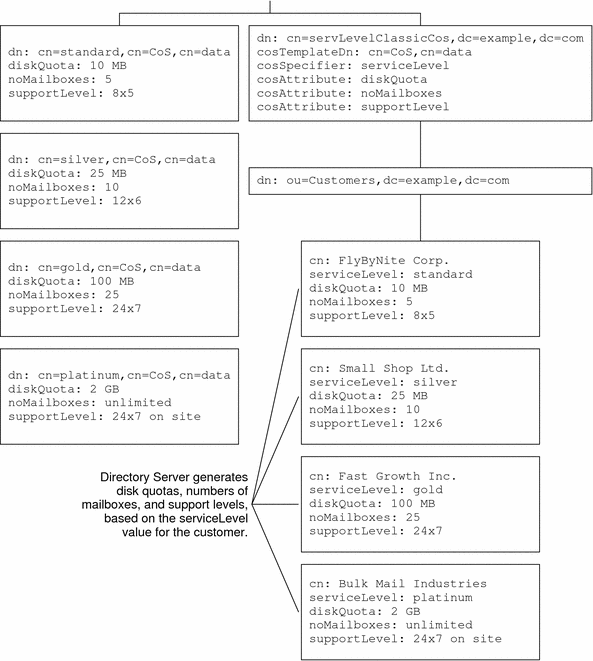Using CoS When Entries Have Natural Relationships
CoS also provides substantial data administration benefits when directory data has natural relationships.
Consider an enterprise directory in which every employee has a manager. Every employee shares a mail stop and fax number with the nearest administrative assistant. Figure 8–7 demonstrates the use of indirect CoS to retrieve the department number from the manager entry. In Figure 8–8, the mail stop and fax number are retrieved from the administrative assistant entry.
Figure 8–7 Generating DepartmentNumber With Indirect CoS

In this implementation, the manager’s entry has a real value for departmentNumber, and this real value overrides any generated value. Directory Server does not generate attribute values from CoS-generated attribute values. Thus, in the Figure 8–7 example, the department number attribute value needs to be managed only on the manager's entry. Likewise, for the example shown in Figure 8–8, mail stop and fax number attributes need to be managed only on the administrative assistant’s entry.
Figure 8–8 Generating Mail Stop and Fax Number With Indirect CoS

A single CoS definition entry can be used to exploit relationships such as these for many different entries in the directory.
Another natural relationship is service level. Consider an Internet service provider that offers customers standard, silver, gold, and platinum packages. A customer’s disk quota, number of mailboxes, and rights to prepaid support levels depend on the service level purchased. The following figure demonstrates how a classic CoS scheme enables this functionality.
Figure 8–9 Generating Servic-Level Data With Classic CoS

One CoS definition might be associated with multiple CoS template entries.
- © 2010, Oracle Corporation and/or its affiliates
